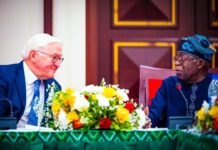Tunisians will vote on Sunday in a presidential run-off where a law professor competes against a media tycoon as the North African country on the Mediterranean, grapples with economic and security challenges.
It has been less than a decade since Tunisia, the origin of the 2010-11 Arab Spring revolts, toppled its long-time autocratic government in favour of democratic elections.
Social unrest, militant attacks and an economic slowdown have afflicted the country on its fledgling democratic path.

The unemployment rate is about 15 per cent.
Media tycoon Nabil Karoui, 56, has been tarnished by corruption allegations.
He was released from jail on Wednesday after spending more than a month in custody on money laundering and tax evasion charges.
Karoui, who has not been convicted, presents himself as an advocate of Tunisia’s poor and marginalised as the head of the recently founded centre-left Heart of Tunisia party.
Law professor Kais Saied, 61, is an independent with no political experience.
He has pledged to fight corruption and support decentralization.
Both topped the election’s first round on September 15, defeating contenders from mainstream political parties.
About 7.2 million people were registered to vote, with more than 4,500 polling stations to participate across the country.
Polls were to be open for 10 hours, starting at 8 am (0700 GMT).
The election, originally scheduled for November, was pushed forward by the death of Tunisia’s first democratically elected president, Beji Caid Essebsi, in July, five months before the end of his term. (dpa/NAN



